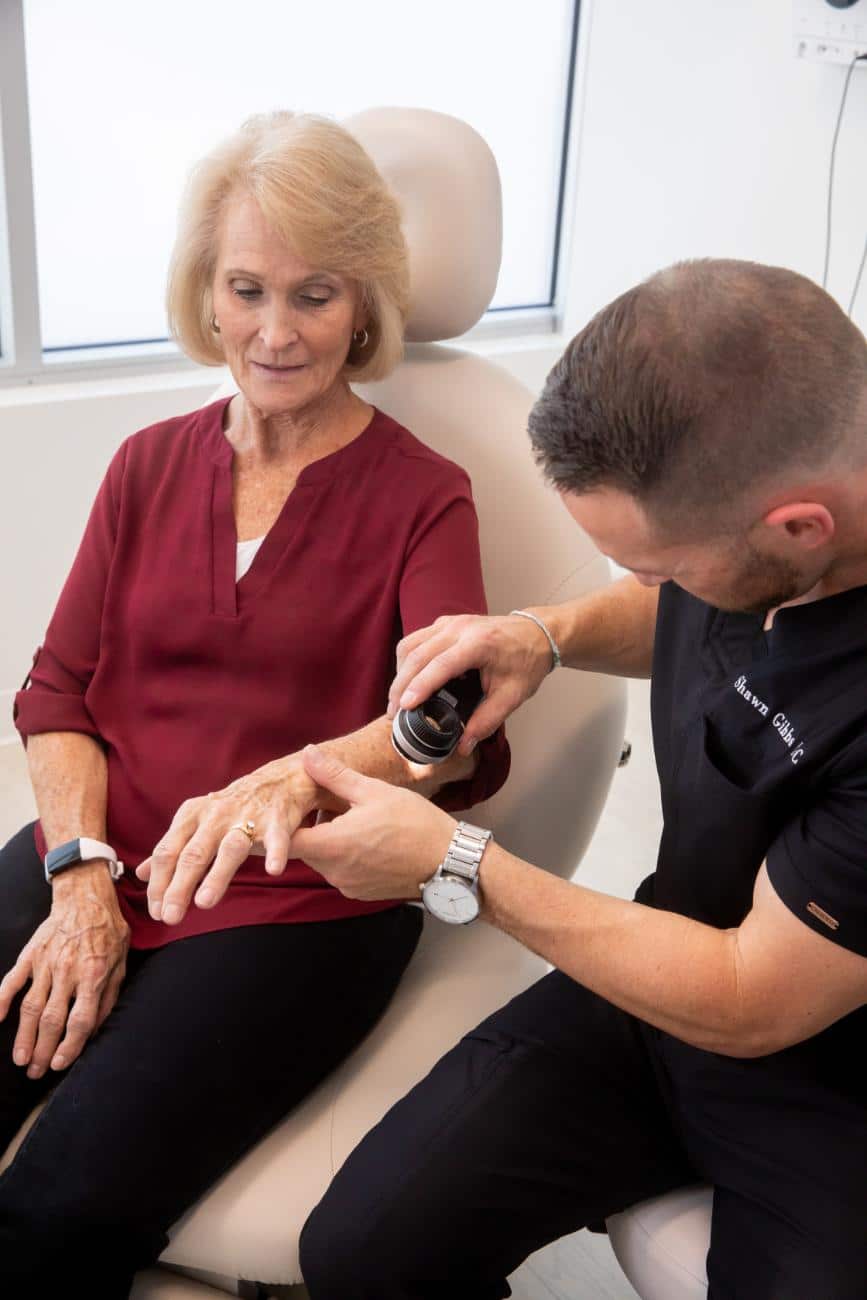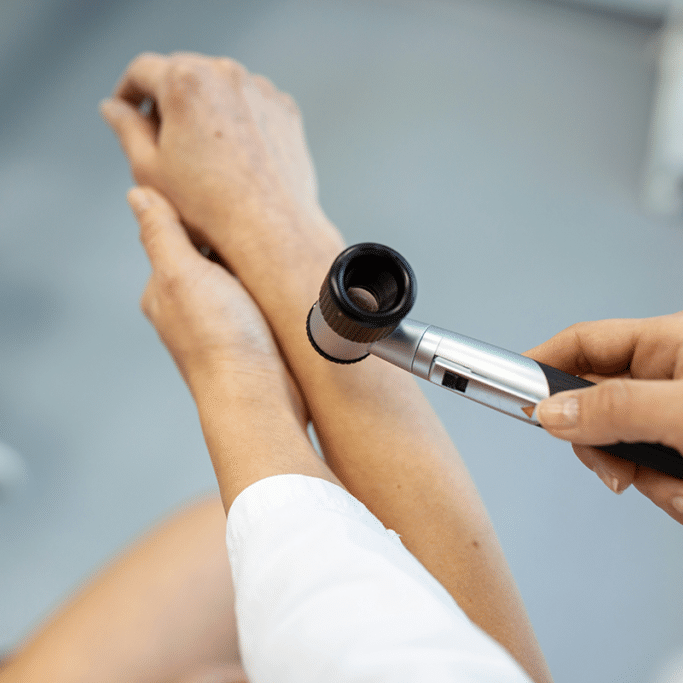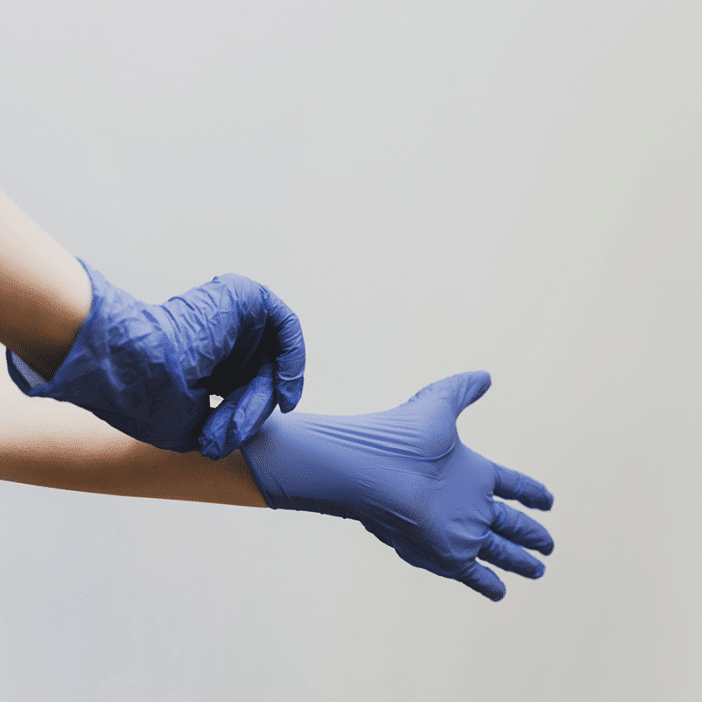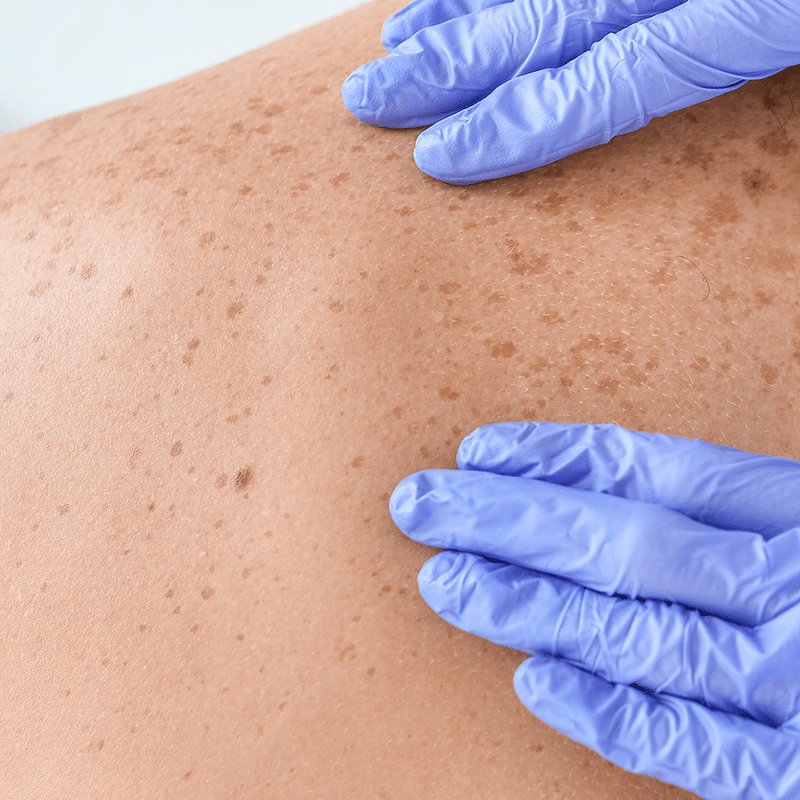Skin Cancer Screening in Lehi, Utah
How To Detect Skin Cancer
Asymmetry
Is the mole or growth uneven? Do the four quadrants match?
Border
Are the edges irregular, ragged, or blurred? Do they blend into the surrounding skin?
Color
Is the mole or growth uniform in color, or does it have multiple shades of brown, black, tan, white, red, gray, or blue?
Diameter
Is the mole or growth larger than 1/4 inch (the size of a pencil eraser)?
Evolving
Has the mole or growth changed in size, shape, texture, or color over time?
Common Signs of Skin Cancer
New spots or moles
Changes in texture or sensation
Non-healing sores
Swelling, redness, or color spread

Early Detection Saves Lives

Factors That Increase Your Risk For Skin Cancer
Skin cancer can affect anyone, regardless of skin color. However, certain factors can increase your risk:
- Fair skin that burns and freckles easily
- Light-colored hair and eyes
- A large number of moles or history of abnormal moles
- Extensive exposure to sunlight or tanning beds
- History of blistering sunburns
- Family history of skin cancer
- Exposure to radiation or chemicals
- Weakened immune system
- Exposure to arsenic
- Previous skin cancer diagnosis
By understanding your risk factors and regularly checking your skin, you can play an active role in safeguarding your health.
Empowering Your Skin Journey
At our dermatology clinic, we believe in partnership. We provide personalized care, educational resources, and cutting-edge treatments to help you achieve and maintain healthy, beautiful skin.

What happens during a skin cancer screening?
Your Skin will be examined and screened for skin cancers
If necessary, any skin biopsies or same day procedures will be performed.
Peace of mind & education are provided.
Schedule your skin cancer screening today!
Skin Cancer Screening FAQ
At what age should I start getting skin checks?
It's recommended to start getting regular skin checks in your early 20s.
This is especially important if you have a family history of skin cancer or if you have fair skin, freckles, or a history of excessive sun exposure.
The initial exam is the most important. At your first skin exam, your dermatologist can identify skin check frequency you should consider based on your initial screening, age, and risk factors.
However, it's never too late to start. If you're older and haven't had regular skin checks, it's crucial to see a dermatologist as soon as possible. Early detection of skin cancer is key to successful treatment and prevention of complications.




